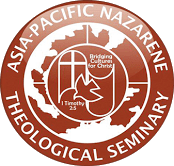- Resource Types
- Resource Languages
- Institutional Repository
 Visit the home page
Visit the home page
About Site Language
WHDL is viewable in multiple languages. Use the pull-down menu to select a language to view the site.
I changed my language, but I’m still seeing resources in the other languages?
If a resource or text has not been translated into your selected language, it will appear in the initially added language. We are always looking for help translating these resources. If you can help, contact us!
WHDL - 00009650


click to copy
Bokare, S (2016). The impacts of HIV related stigma on children infected and affected with HIV among the care and share project of the Free Methodist Church, Andheri East, in Mumbai .
Bokare, StellaThe impacts of HIV related stigma on children infected and affected with HIV among the care and share project of the Free Methodist Church, Andheri East, in Mumbai . , 2016
Bokare, StellaThe impacts of HIV related stigma on children infected and affected with HIV among the care and share project of the Free Methodist Church, Andheri East, in Mumbai . , 2016
Bokare, StellaThe impacts of HIV related stigma on children infected and affected with HIV among the care and share project of the Free Methodist Church, Andheri East, in Mumbai . , 2016
People infected and affected by Human Immunodeficiency Virus (HIV) and Acquired Immune Deficiency Syndrome (AIDS) remain stigmatized, no matter how far technology has advanced in the development of medications to treat the disease. Many of the survivors live undercover in their societies with a fear of being stigmatized and discriminated. HIV/AIDS related stigma is observed as a key problem that must be addressed at various levels. India is one of the hardest hit countries with HIV. It has the third largest HIV population in the world. With high prevalence in some states of India, the rising incidences of stigma are not reported in many areas. People living with HIV/AIDS in India experience stigma in a variety of settings, such as family, community, school and the work place. Where there are many studies conducted on HIV/AIDS related stigma, research on the impact of HIV related stigma on children is relatively sparse. This study focuses on understanding the impact of HIV related stigma on children and seeks insights into how churches can provide holistic ministry to the children and families infected and affected by HIV/AIDS in Mumbai. The study participants were children and families who are served by the Care and Share ministries of Dayanand Foundation of Free Methodist Church in Mumbai. The case study method was used in this research. Through interviews, data was gathered from children living with HIV/AIDS, their parents, and key informants which included Non-Government Organization (NGO) leaders, medical doctors, and selected pastors. A variety of methods was used in the interview process. Younger children were asked to make drawings of their family and experiences at school. They then were engaged in a conversation to reflect the feelings and experiences expressed in the drawings. Story telling was also used for younger children. They listened to a story and responded to questions. These methods helped the younger children talk about their journey with HIV. “Family constellation” was a method used with the older children. Small pieces of clay were given to them and they were asked to make figures representing the members of their family. On a piece of cardboard, the children arranged the figures to depict a home/family scenario and then were given opportunity to explain the process and share their thoughts. I observed their responses and recorded them along with the remarks of the children in this activity. In-depth interviews were conducted with the key informants: medical doctors, NGO leaders and pastors. After the data was collected, I compared the data from all sources, looking for similarities, differences, and significant insights into understanding the impact of stigma associated with HIV/AIDS on children and families and how they cope with it. The findings of this study reveal that the stigma experienced by the parents who live with HIV is eventually transmitted to their children. With no assistance given to children, they have not processed the stigma experience of their parents or their own experiences. Therefore the impact of compound stigma is multifaceted in the lives ofchildren. Based on the findings, recommendations are laid out for an effective ministry to children and families infected and affected by HIV in Mumbai. Key recommendations include: that Pastors of the Free Methodist Churches in Mumbai and the Program Leader of Care and Share work together to reestablish and develop an effective ministry partnership between the Church and the Free Methodist NGO, that the pastor and a team of lay members intentionally address the issues related to HIV and stigma in the church, and that the vision and mission of the church would include a ministry with the marginalized, including children and families living with HIV.
Copyright statement is available in the library.
11 Resources
This collection contains the dissertations completed in partial fulfillment of the Degree PhD in Holistic Child Development, and PhD in Transformational Learning at Asia-Pacific Nazarene Theological Seminary in partnership with Asia Graduate School of Theology.
34 Resources
This collection contains the dissertations of our graduates that fulfilled the degree of Doctor of Philosophy in Holistic Child Development at Asia-Pacific Nazarene Theological Seminary. The program is designed for those preparing to be equipped in leadership, teachers of children, practitioners, and pastors, so that they will have the gifts, skills, and capacity to care holistically for children inside and outside the church.
2023
2015
2014
2024
2020
2021
2014